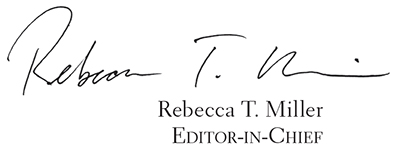A Crisis in Communication: Building the skills we need to shape our society together | Editorial
 When was the last time you changed your mind on a key issue? Are you a fox or a hedgehog in the sense that Isaiah Berlin and, later, Philip Tetlock describe? Do you stick to your guns no matter what, or do you adjust your opinions with new information? We know our news feeds can cut us off from a practical understanding of our democracy. The way we think can, too.
When was the last time you changed your mind on a key issue? Are you a fox or a hedgehog in the sense that Isaiah Berlin and, later, Philip Tetlock describe? Do you stick to your guns no matter what, or do you adjust your opinions with new information? We know our news feeds can cut us off from a practical understanding of our democracy. The way we think can, too.
The phrase “let’s talk” is so rich with promise. It is exciting when it is used in addressing a perplexing issue. What happens when a conversation unfolds, when it pushes along the peaks and valleys of mutual exploration of a question under consideration, is unmatched. All too often, however, the nature of discourse is less about considering a problem together—and truly understanding each others’ points of view—than it is about taking a position and sticking to it. Actually exploring an idea requires skill. It takes empathy to want to really know what another person thinks and why, especially when you believe something else.
But constructive discourse is so critical to working together in order to shape a society we want to live in, and we are now facing a crisis in communication. In "Can We Talk?” Brenda Iasevoli explores how librarians are supporting civics education by focusing first on how we talk to one another, and the practice of discussion that is about exploring an idea, using multiple, fact-based resources from a variety of political points of view.
Ideally, the process of forming an opinion on an issue can be a complex, rich experience—and sharing opinions should be a safe opening to exploration instead of an invitation to a fight. ProjectCiv and other initiatives are helping build the skills to get there.
It strikes me that it also matters that you care about what the other person thinks and feels, and that you are curious and tune into what they have to offer. Dialogue fundamentally relies on us to be open to what other people are saying, even if you are uncomfortable with the way they say it. After all, it is appropriate to get emotional about things that affect you. Adults can use a lot of help here—even those of us who may think we are good at this. Can you actively listen? Do you model it for kids?
Effective discourse should always be a priority, and with an important midterm election season ahead, we have a teachable moment. The time is now to help the kids around us gain key skills they’ll need today and throughout their lives. And, after self-examination, maybe even hit refresh on our own approach to listening, inquiry, and true open-mindedness.

RELATED
The job outlook in 2030: Librarians will be in demand
The job outlook in 2030: Librarians will be in demand
ALREADY A SUBSCRIBER? LOG IN
We are currently offering this content for free. Sign up now to activate your personal profile, where you can save articles for future viewing






Add Comment :-
Be the first reader to comment.
Comment Policy:
Comment should not be empty !!!